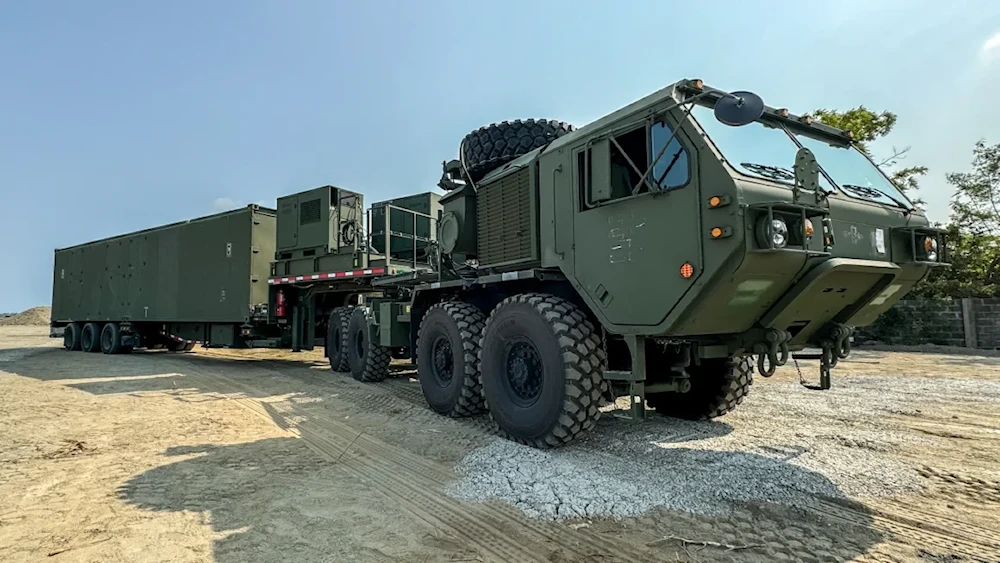China criticizes US ballistic missile deployment in Philippines
Chinese Foreign Ministry spokesperson Mao Ning has issued a stern warning regarding the US deployment of intermediate-range missiles in the Philippines
-

The US Army’s Mid-Range Capability (MRC) Launcher in northern Luzon, Philippines on April 8, 2024. (US Army Pacific)
China issued a warning on Friday about the US deployment of intermediate-range missiles in the Philippines, expressing concern over its implications for regional security.
During a press briefing, Chinese Foreign Ministry spokesperson Mao Ning said, "The deployment is a move to turn back the wheel of history, and it gravely threatens regional countries’ security, undermines regional peace and stability."
She added that these actions contradict the shared aspirations of people in the region for peace and development.
"We urge relevant countries to listen to the call of countries in the region and step back from the wrong path as soon as possible," the Chinese Foreign Ministry spokesperson stressed.
This comes shortly after a spokesperson for the Philippine Army announced Thursday that a US mid-range missile system deployed in the Philippines for annual joint military exercises will be withdrawn from the country.
Currently, the Philippines is hosting a US land-based intermediate-range missile system called "Typhoon," with reports indicating that the military has been trained on how to operate and maintain it. The system is expected to stay in the country until September.
The US deployed these missiles during the annual joint military exercises known as "Balikatan 2024" with the Southeast Asian archipelago, which took place in late April.
Dive deeper
In April, the US Army deployed the Mid-Range Capability missile system, which can launch the Standard Missile 6 (SM-6) and the Tomahawk Land Attack Missile, in the northern Philippines.
At the time, Colonel Louie Dema-ala told AFP that Philippine troops received training on the use and maintenance of the Typhon missile system, although it was not utilized in live-fire exercises.
"As per plan... it will be shipped out of the country in September or even earlier," Dema-ala stressed, adding that "the US Army is currently shipping out their equipment that we used during Balikatan and Salaknib (exercises)."
Why it matters
The presence of the mid-range missile system in the Philippines had provoked anger from China.
In June, Chinese Defense Minister Dong Jun cautioned that there were "limits" to Beijing's restraint regarding the South China Sea and the deployment of ballistic missiles in the Asia-Pacific region.
The deployment of "medium-range ballistic missiles" was "severely damaging regional security and stability," Dong warned.
"Acting in this way will ultimately burn oneself," he stressed at the time.
His comments at a security forum in Singapore clearly alluded to the Philippines and the United States, who have been strengthening defense ties.
In an attempt to counter Chinese influence, the United States has been reinforcing alliances with countries in the Asia-Pacific region, including the Philippines.
Washington and Manila are treaty allies and have deepened their defense cooperation since Philippine President Ferdinand Marcos took office in 2022.
The Philippines' proximity to the South China Sea and Taiwan makes it a key partner for the United States in the event of a confrontation with China.
Read more: Philippines: Deal with US, Japan to shift dynamic in South China Sea

 3 Min Read
3 Min Read








